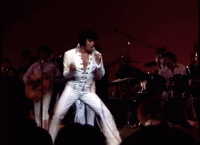You are using an out of date browser. It may not display this or other websites correctly.
You should upgrade or use an alternative browser.
You should upgrade or use an alternative browser.
'19 CB S Anthony Harris (UT commit 6/8/18)
- Thread starter Big Gucci Sosa
- Start date
CAVPUT
CEO Quippy Grumps of VN
- Joined
- Mar 7, 2010
- Messages
- 24,519
- Likes
- 49,761
PoweredByTheT
Insiderest Insider
- Joined
- Jun 12, 2018
- Messages
- 1,394
- Likes
- 3,310
CAVPUT
CEO Quippy Grumps of VN
- Joined
- Mar 7, 2010
- Messages
- 24,519
- Likes
- 49,761
Montrell Hardy
Well-Known Member
- Joined
- Jun 2, 2009
- Messages
- 7,595
- Likes
- 2,280
goooooovols
livesTrong
- Joined
- Aug 3, 2009
- Messages
- 4,064
- Likes
- 2,775
But if he’d walked away he wouldn’t be dealing with his current situation.... give an take I guess, but I can tell you from experience never wrong and saves a bunch of time and regret.Sounds like he tried to reason with the guy and it didn't work. Sometimes you can't walk away or you get labeled as soft and have to deal with this crap all the time.
LittleVol
Of course I can help you, Coach Heupel.
- Joined
- Oct 10, 2014
- Messages
- 23,328
- Likes
- 41,613
But if he’d walked away he wouldn’t be dealing with his current situation.... give an take I guess, but I can tell you from experience never wrong and saves a bunch of time and regret.
I do agree with your logic, but sometimes you can't walk away. I've seen people try to walk away and end up getting blindsided.
However, I don't think this will stop this kid from becoming a Vol. And he'll add a nice element to our rapidly improving secondary personnel.
Devo182
"Well Known Member" TWSS
- Joined
- Jan 25, 2015
- Messages
- 40,888
- Likes
- 141,071
Pepe_Silvia
#mikehawk
- Joined
- Sep 5, 2006
- Messages
- 23,519
- Likes
- 47,417
Devo182
"Well Known Member" TWSS
- Joined
- Jan 25, 2015
- Messages
- 40,888
- Likes
- 141,071
HalfullVol
Ain't it Funky now - JB
- Joined
- Jan 26, 2011
- Messages
- 5,013
- Likes
- 9,268
butchna
Sit down and tell me all about it...way over there
- Joined
- Jan 6, 2013
- Messages
- 106,971
- Likes
- 224,957
ChattaTNVol
Well-Known Member
- Joined
- Sep 13, 2011
- Messages
- 4,923
- Likes
- 28,202
Maybe inappropriate, but reading this thread reminded me of an article I read a couple days ago on Jamal Lewis.
Jamal Lewis Making Most of Post-NFL Life—but Preparing for Darker Days to Come
"Hell, where I grew up, you take a lot of risk. You risk your kid going out hanging with the wrong crowd, selling drugs. You risk your kid hanging out with the wrong crowd, getting killed. You risk your kid hanging out with the wrong crowd, joining a gang. So, which one are you going to take? I'll take football any day out of all of that.
"It'll take us less than 15 minutes to get there. Follow me."
And off we went. Never mind that it's another chaotic day in Lewis' world. Mr. Mom…meets Silicon Valley…on a NASCAR track. He needs to show you his 'hood. This trip will help all understand why he has zero regrets. Why he's equipped to fight this. Sure enough, right when an "Adamsville" sign appears off the I-20, so does Lewis' Jeep, and he veers off the exit. Past homes on the brink of collapse. Past abandoned buildings tucked inside the woods.
Right to the old neighborhood park. This is where everything will crystallize, Lewis promises, now walking across the street.
The first thing he notices are the lawnmowers. Those weren't needed when he played here, because there was no grass. Only dirt, rubble, shards of glass. So much glass. Lewis never wanted to get tackled because it meant gashing up his skin—the main reason he's always been so fast for his size.
Lewis turns around. See that hill? It wasn't covered by trees then. He'd run that hill religiously. And at eight, nine, 10 years old, all kids here took out their aggression on each other. Kids limped home bleeding every day.
"You're a warrior," Lewis says. "This is what it comes back to right here. This is where I was trained right here. To be violent. My dad used to tell me, 'You better hit them before they hit you.' That's where that attack mode came from. You better be on the attack. Be the hitter. That's what it was more about. You have to be physical.
"You have to seek and destroy. Because if you don't? This is your community…"
Translation: Your rep was always on the line. If you didn't make it very clear, very fast you were a badass, you were in trouble.
Every hitting drill was ruthless.
"We had so many kids getting knocked out with concussions," Lewis says. "You can't lay down. That wasn't even a thought. It was, 'Get your ass back in there.' Because you had to be tough. It was hard-nosed, straight-up, nose running, crying, if you're weak you won't survive out here."
Reliving the gore, Lewis cannot stop smiling.
This field was an escape from the hell surrounding kids. From the crackheads and prostitutes and drug dealers who lined a street right over our shoulder. (Still do, too.) Going to the store, Lewis says, was "an adventure." And at night, he'd often wake up to the sound of gunfire, of murder. You have two options in life here: sell drugs or join the military. That's it, he assures. Nobody here could visualize hope outside of the drug lord cruising through town in a Mercedes.
Lewis lived in a two-parent household, but his mom (a warden at a prison) and dad (a railroad worker) fought constantly, and there weren't many "I love you"s thrown around. Says Lewis, "Later on in your life, you see you did need that." The fighting combined with the imminent danger around him took a toll.
So he turned to football. So he built a monster. So he created a third option.
The moment Lewis looks down at his feet and sees a reddish shard of glass, he feels those butterflies return again and relives those "Bull in the Ring" drills. That separation of man from boy when fights broke out and you had to fend for yourself. Friends became enemies. Enemies became friends. Many of his childhood friends are now dead or in jail. Lewis is still standing.
Jamal Lewis Making Most of Post-NFL Life—but Preparing for Darker Days to Come
Geaux_Vols
Well-Known Member
- Joined
- Feb 1, 2016
- Messages
- 4,217
- Likes
- 38,977
Maybe inappropriate, but reading this thread reminded me of an article I read a couple days ago on Jamal Lewis.
Jamal Lewis Making Most of Post-NFL Life—but Preparing for Darker Days to Come
read that when it was published a while back. extremely sobering read.
SweetasSoda
Captain of the Cheerleaders
- Joined
- Jul 28, 2018
- Messages
- 22,989
- Likes
- 141,172
WowMaybe inappropriate, but reading this thread reminded me of an article I read a couple days ago on Jamal Lewis.
Jamal Lewis Making Most of Post-NFL Life—but Preparing for Darker Days to Come
RikidyBones
Formerly utvols88
- Joined
- Aug 23, 2009
- Messages
- 39,691
- Likes
- 99,900
The Dog
Because I Can
- Joined
- Jan 28, 2014
- Messages
- 16,986
- Likes
- 26,511
Great read. Btw, it's damn shame he's not in the NFL Hall of Fame. I think Terrell Davis deserves to be in the HOF, but all his career numbers are less than Jamal's except TD's and Davis has one more ring. Jamal has the 2nd most single season rushing yards total in the 100 year history of the NFL. 2 of the 5 most single game rushing yards in a NFL game, once again, in the 100 year history of the NFL. Over 10,000 rushing yards for his career, when he retired, everybody with over 10,000 was in the HOF, unless still active. Got a ring, too and he was the Ravens offense, that year. In fact, during this year's Super Bowl when Sony Michel scored a rushing TD it was the first time a rookie had since our boy Jamal Lewis did. I know that last fact doesn't help with his HOF campaign, I just thought it was cool and didn't know it until the SB announcers mentioned it.Maybe inappropriate, but reading this thread reminded me of an article I read a couple days ago on Jamal Lewis.
Jamal Lewis Making Most of Post-NFL Life—but Preparing for Darker Days to Come
Anthony Harris is a baller and a I hope Pruitt and company get him in UT. I also hope he gets himself into UT, taking care of business in the class room (online or however) and on his ACT/SAT's. Yes, he probably should have walked away from that situation, but at every high school and/or park/rec/hangout in America, u have to defend yourself in that spot, especially if u didn't do it. Hell, it was like that when I was in high school, slightly over 30 years ago.
Last edited:
Completely agree. I was shocked when JC Shurburtt said he wasn’t as good a player as Derek boykins. Usually JC his good at evaluations, especially in the Carolinas, but his gamecock homerism has seemingly ruined thatAP compared Harris to Bryce Thompson in today's VQ podcast. Said Pruitt absolutely loves his athleticism and alpha-dog mentality. This guy is a must to get into school. I've said all along he is easily one of the most impressive true Free Safety prospects in this class.
AngryButchJones
Not a Coach
- Joined
- Jan 4, 2017
- Messages
- 4,338
- Likes
- 10,087
Devo182
"Well Known Member" TWSS
- Joined
- Jan 25, 2015
- Messages
- 40,888
- Likes
- 141,071






